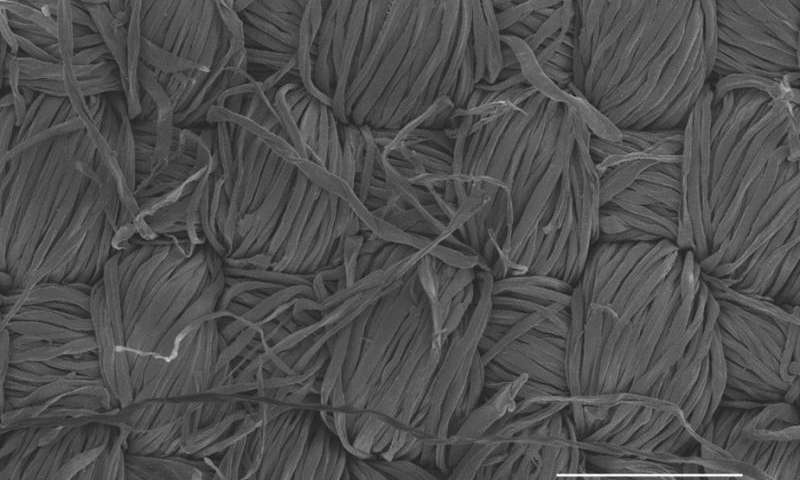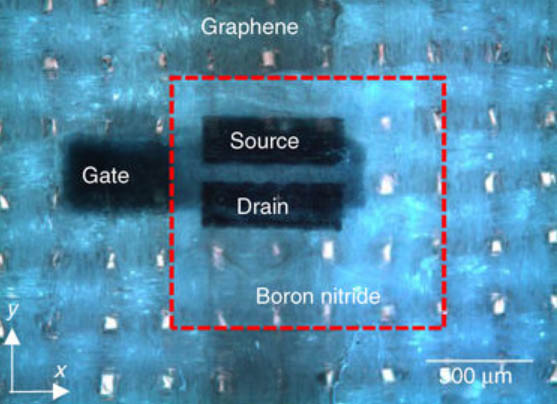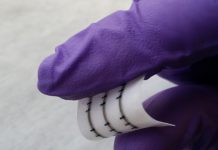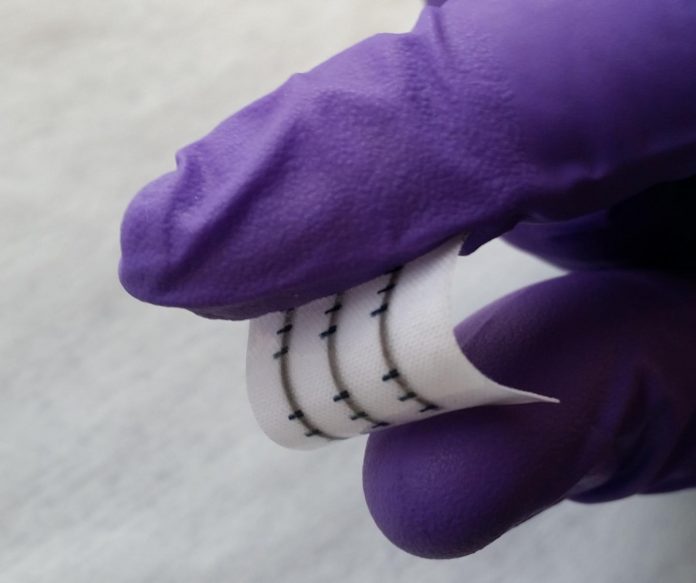Researchers from the University of Cambridge, working with colleagues in China and Italy have successfully integrated washable, breathable and stretchable electronic circuits into fabric, opening up many new possibilities for wearable electronics and smart textiles. The circuits have been made with safe, affordable, and environment friendly inks, and printed using conventional inkjet printing techniques.
The researchers have demonstrated how graphene – a two-dimensional form of carbon – can also be directly printed onto cloth to produce integrated electronic circuits which are comfortable to put on and can withstand up to 20 cycles in a regular washing machine.
The new textile electronic devices are based on cheap, sustainable and scalable inkjet printing of inks based on graphene and other two-dimensional materials, and are produced via standard processing techniques. The results are published in the journal Nature Communications.

Based on previous work on the formulation of graphene inks for printed electronics, the scientists designed low-boiling point inks, which have been directly printed onto polyester fabric. They also discovered that modifying the roughness of the material improved the performance of the printed devices. The versatility of this procedure allowed the researchers to design not only single transistors but also all-printed integrated electronic circuits combining active and passive elements.
Most wearable electronic devices which are currently available depend upon rigid electronic elements mounted on rubber, plastic, or textiles. These offer restricted compatibility with the surface in many cases, are damaged when washed and are uncomfortable to put on because they aren’t breathable.
“Other inks for printed electronics usually require toxic solvents and aren’t suitable to be worn, while our inks are both safe, cheap and environmentally-friendly, and can be combined to create electronic circuits by simply printing different two-dimensional materials on the fabric,” stated the paper’s senior author, Dr Felice Torrisi of the Cambridge Graphene Centre.
“Digital textile printing has been around for many years to print simple colourants on textiles, however our result demonstrates for the first time that such technology can be used to print the entire electronic integrated circuits on textiles. Although we demonstrated very simple built-in circuits, our procedure is scalable and there are no fundamental obstacles to the technological development of wearable electronic devices both in terms of their performance and complexity.” mentioned co-author Professor Roman Sordan of Politecnico di Milano.
The work opens up a lot of commercial opportunities for two-dimensional material inks, starting from fashion, military garments, personal health and well-being technology, wearable computing to wearable energy harvesting and storage.

“The printed elements are flexible, washable and require low power, essential requirements for programs in wearable electronics,” stated PhD scholar Tian Carey, the paper’s first author.
“Turning textile fibres into functional electronic components can open to a completely new set of applications from healthcare and wellbeing to the Internet of Things,” said Torrisi. “Thanks to nanotechnology, in the future our garments could incorporate these textile-based electronics, such as displays or sensors and become interactive.”
You May Like: Graphene Can Be Used To Make Indoor Solar Cells
The use of graphene and other related 2-D material (GRM) inks to create electronic components and gadgets built-in into fabrics and innovative textiles is at the centre of latest technical advances in the smart textiles industry. The research teams at the Cambridge Graphene Centre and Politecnico di Milano also are involved in the Graphene Flagship, an EC-funded, pan-European venture devoted to bringing graphene and GRM technologies to commercial applications.














































